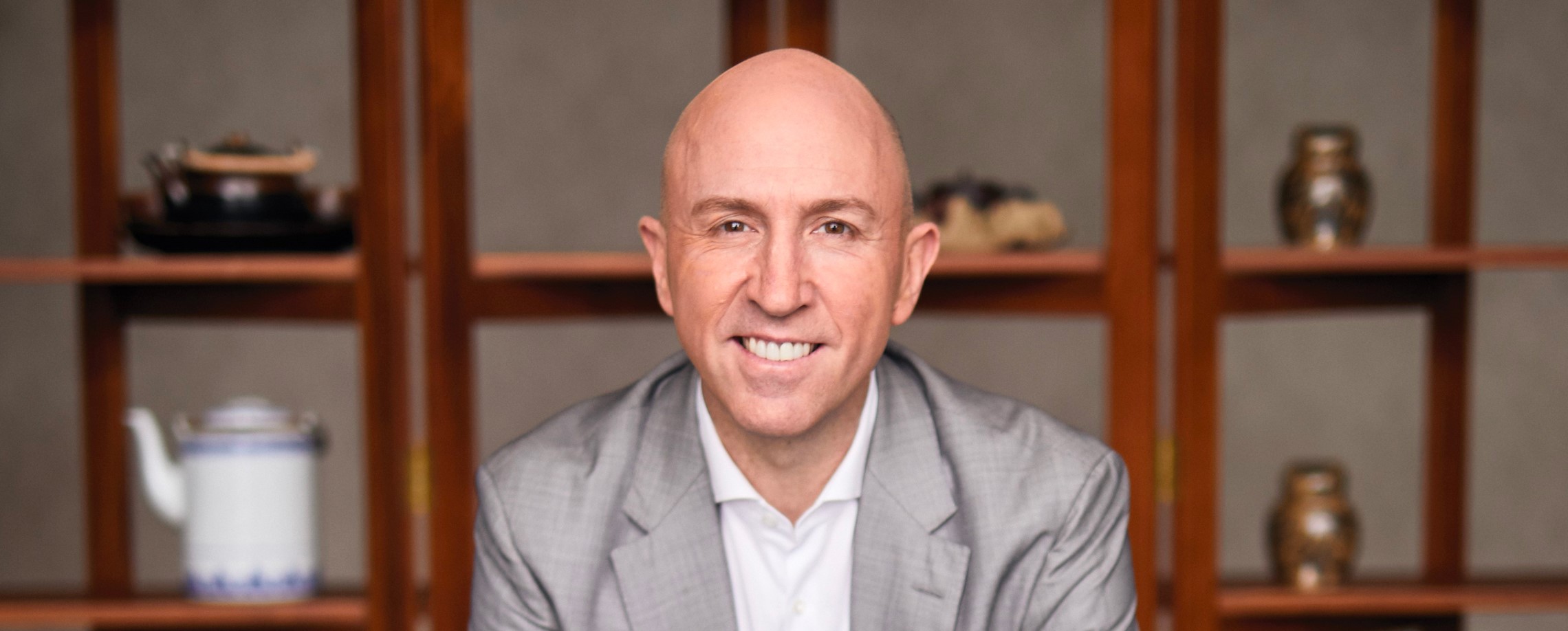
- Author: Jessica Mudditt
- Posted: April 27, 2023
“The CFO is the control tower of the modern business,” says SAP executive Scott Russell
Scott Russell is a member of SAP’s executive board and leads the company’s global sales, services, partner, and customer engagement organisation. During a recent visit to Australia from New York, he told CFO Magazine about how CFO’s areas of focus are vastly broader than they were in the past.
Scott Russell was a managing consultant at PwC in Melbourne 2001 when it was acquired by IBM and he was offered the chance to relocate to Singapore. At the time, he and his wife had three children under the age of three, including a newborn.
“We made the decision to pack up our family and leave behind our support network of family and friends,” says Russell. “It turned out to be far more challenging than we expected, but the experience completely changed my outlook on life – both professionally and personally. It taught me how business is done around the world and more importantly, it gave me a cultural understanding.”
After 11 years with IBM, Russell became senior vice president at SAP in 2010, and led its professional services business across Asia Pacific and Japan. From there he became COO, then president and managing director of Southeast Asia, then president of APAC and Japan. He has worked in Thailand, and has done extensive travel across Southeast Asia, Japan, India, Europe and the United States.
“One of the things I have learned in my career is to see difficult situations as an opportunity. Be comfortable being uncomfortable. It is something I have lived by during my career, and I have realized that often your first plan is not your final plan.”
From Ballarat to New York
In 2021, during the depths of Covid-19 lockdowns, Russell and his wife moved to New York to take up his current role with SAP as an executive board member leading the Customer Success organization. He lives two blocks from Madison Square Garden and spends his weekends watching basketball and ice hockey and going to the theatre. It is a world away from where he grew up in the rural town of Ballarat in Victoria.
Russell was not naïve in his expectations of business being done differently in each of the cultural contexts he has worked in. However, he says he has been surprised by the difference within the United States itself, which is rich in geographical nuance.
“In New York, communication is fast and direct. Meetings are about impact, rather than long-term relationship-building,” he says. “Whereas if you go to Chicago or Minnesota in the Midwest, there are a lot more family-owned businesses that have been built up by supporting the local community. They’ll take some time to get to know you. They’re looking to understand what drives you and to see if it matches with their purpose.”
Russell is in day-to-day contact with CFOs around the world, including with SAP client Geographe Enterprises Pty Ltd. The Australia-based organisation helps mining companies reduce operating costs across the equipment lifecycle. Inconsistencies in Geographe’s legacy systems began to slow it down, so it needed to standardize its business processes in order to expand its global reach. Geographe partnered with SAP to provide an intelligent infrastructure for ERP.
Challenges for CFOs ahead
In its annual CFO Survey, research firm Gartner found that CFOs expect to be stretched thinly across many activities this year. It is a sentiment that rings true to Russell.
“I meet CFOs more than any other custodian,” he says. “That is because the CFO is the primary user and guidance point of our technology. Our aim is to support the modern CFO in the digitization of their core job, as well as their broader responsibilities.”
He sees the CFO role as having expanded from the core tasks of financial planning and managing financial risks to a wider array of business policies, such as non-financial data reporting. SAP was itself originally founded with the idea of delivering core capabilities at scale for a CFO and has also expanded its focus into broader processes, workflows and capabilities.
“The CFO is the control tower of the modern business,” he says. “The epicentre of a business was historically quite distributed in accountabilities between a CEO, CFO and COO, along with the head of sales, marketing and operations. We’ve seen the CFO become that control tower – whether it’s a formal decision making authority or not, they are increasingly relied upon.”
Maintaining the momentum on ESG
Russell believes that CFOs therefore have a significant role to play in maintaining a commitment to meeting ESG targets.
“Around the world, sustainability has been top of the agenda in recent years, and that is partly in response to customer and employee concerns, regulatory framework and shareholder expectations,” he says. “But it’s very easy for it to drop down given current uncertainties and challenging economic conditions.”
In some of his conversations with business leaders last year, he noticed sustainability slipping in the level of priority it was formerly accorded.
“The CFO community are best equipped to maintain sustainability commitment discussions because they understand the linkages between simple things like making a business profitable and how it is linked to long-term sustainability,” says Russell.
To that end, SAP is currently building an ESG offering called a green ledger, which will help its clients to drive their sustainability efforts. It will be completed in the next 12 to 24 months and it will precise accounting of resources much the same way as a financial ledger. Core capabilities already exist in some aspects of ESG commitment functions, such as carbon accounting, managing materials for circularity, and diversity and inclusion.
“These decisions need to be made in real time and it’s a heavy burden for the CFO. That is why SAP is going to make it as easy as possible for them,” he says.








